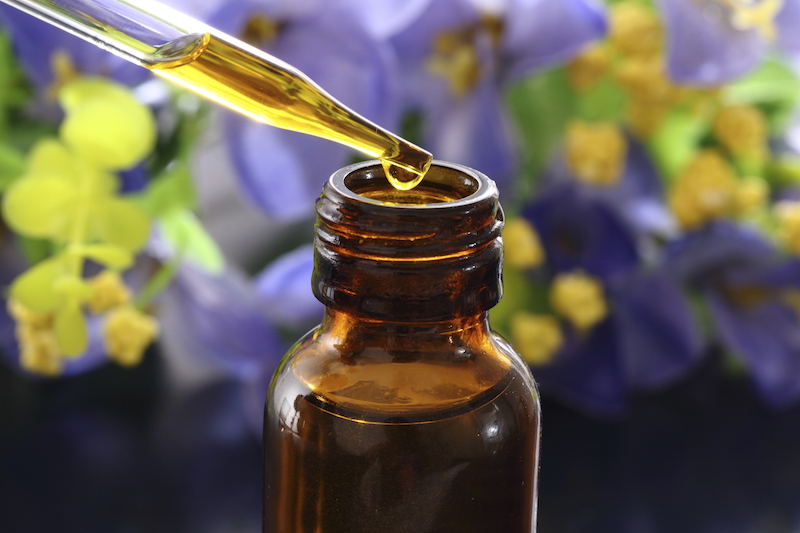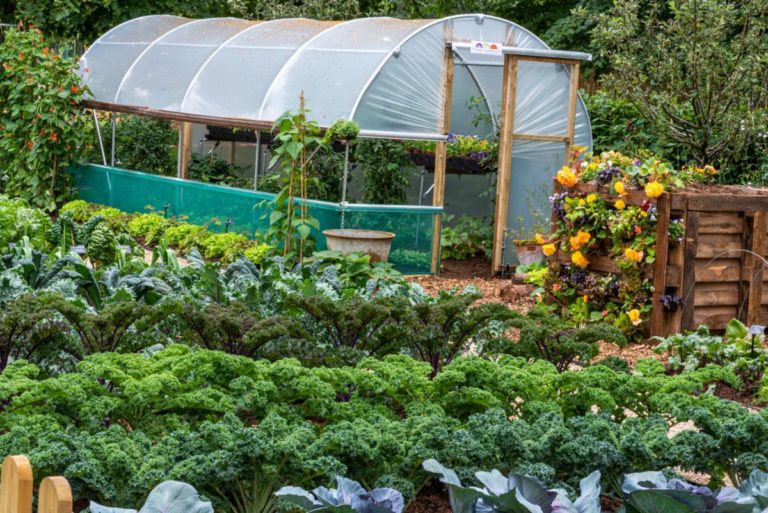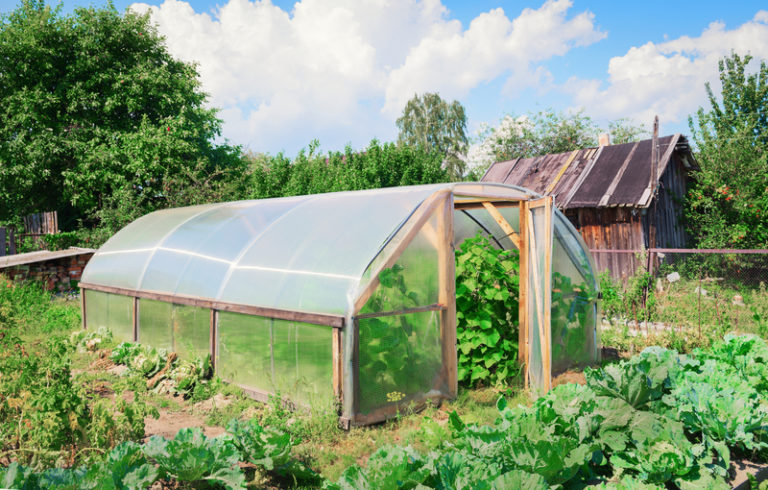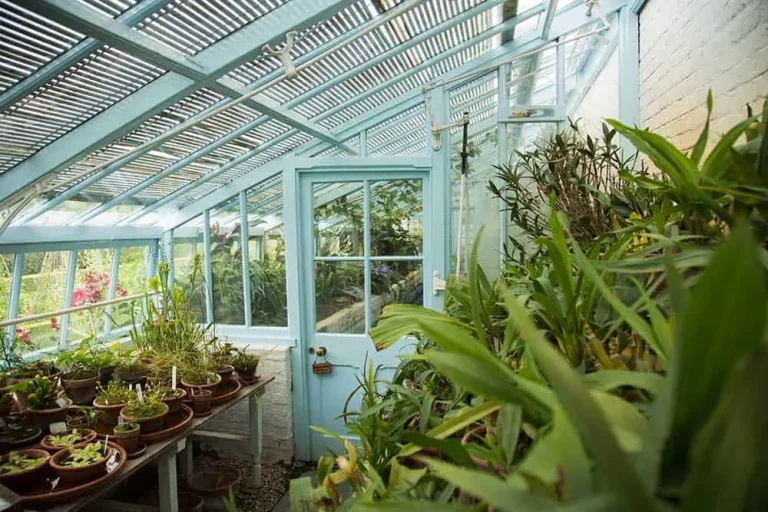Are you looking for a natural and effective way to improve your health?
Do you want to harness the healing powers of medicinal herbs without breaking the bank or relying on commercial products?
Look no further!
Making medicinal herb tinctures at home is a simple, affordable, and empowering way to take control of your well-being.
With just a few basic ingredients and some easy steps, you can create high-quality tinctures that are tailored to your specific health needs.
Whether you’re dealing with stress, anxiety, inflammation, or other health issues, the right herbal tincture can provide effective relief without the use of pharmaceuticals.
We’ll show you how to make medicinal herb tinctures at home using easy-to-follow instructions and expert tips for success.
Let’s get started!
Choose the herbs
Select herbs that are appropriate for the health issue you are trying to address. For example, if you have a respiratory issue, you might choose herbs such as elderberry, thyme, and eucalyptus.
For instance, if you’re dealing with a respiratory infection like the common cold or flu, herbs like elderberry, thyme, and eucalyptus can be highly beneficial.
Elderberry, a rich source of flavonoids, has been shown to have antiviral properties that can help reduce inflammation and alleviate congestion.
Its berries, leaves, and flowers can be consumed as teas, syrups, or supplements.
Thyme, another versatile herb, contains eucalyptol, which has expectorant properties that can help loosen mucus and ease coughs.
Its antibacterial properties can help combat secondary infections.
Eucalyptus, known for its invigorating aroma, is often used in inhalers and cough drops to relieve respiratory congestion.
Its leaves can be consumed as teas or infusions, or used in topical ointments for direct application to the chest and throat.
By selecting the appropriate herbs for your specific health issue, you can create a customized, natural remedy that can help alleviate symptoms, shorten the duration of your illness, and promote overall well-being.
Dry the herbs
Dry the herbs thoroughly to remove excess moisture, which can cause mold or bacterial growth. You can air-dry the herbs by tying them in small bunches and hanging them upside down in a warm, dark place.
To ensure the optimal preservation and flavor of your dried herbs, it is important to dry them thoroughly and remove excess moisture.
If you fail to do so, you risk allowing mold or bacterial growth to occur, which can negatively affect both the taste and the nutritional value of your herbs.
To prevent this, you can air-dry your herbs by tying them in small bunches and hanging them upside down in a warm, dark place.
This method allows for the herbs to dry slowly and evenly, allowing their natural oils and flavors to be preserved.
By doing so, you can enjoy your dried herbs for an extended period of time while still retaining their original taste and aroma.
Remember to always inspect your herbs for signs of mold or bacterial growth before using them, as these can be harmful to your health.
Choose a solvent
Select a solvent that is safe for consumption and appropriate for the herbs you are using. Alcohol (such as vodka or rum) is a common solvent for medicinal herb tinctures, as it can help extract the active compounds from the herbs.
When creating a medicinal herb tincture, it is essential to select a solvent that is safe for consumption and appropriate for the herbs you are using.
Alcohol, such as vodka or rum, is a popular solvent choice for medicinal herb tinctures due to its ability to extract the active compounds from the herbs effectively.
Alcohol acts as a solvent, dissolving the bioactive compounds from the herbs and allowing them to be easily absorbed into the body.
This process also helps to preserve the herbs’ potency and ensures a longer shelf life for the tincture.
Alcohol-based tinctures are more stable and less likely to spoil compared to water-based tinctures.
However, it’s important to choose the appropriate concentration of alcohol based on the herbs used and their desired potency.
A lower concentration of alcohol may be sufficient for less potent herbs, while a higher concentration may be needed for more potent ones.
By selecting a safe and appropriate solvent, you can ensure the effectiveness and quality of your medicinal herb tincture.
Measure the herbs
Use a scale to measure the correct amount of herbs to use for your tincture. A general rule of thumb is to use 1 part herb to 2 parts solvent. For example, if you are using 1 cup of dried herbs, you might use 2 cups of solvent.
When creating a tincture, it is essential to use the correct amount of herbs to achieve the desired potency and flavor.
To measure the correct amount of herbs, use a scale to weigh out the appropriate amount based on a general rule of thumb of 1 part herb to 2 parts solvent.
For example, if you are using 1 cup of dried herbs, you might use 2 cups of solvent.
This ratio allows for an optimal extraction of the active compounds from the herbs while preventing over-extraction, which can result in a less effective tincture.
By using a scale, you can precisely measure the amount of herbs and solvent, ensuring a consistent and high-quality tincture every time.
Using a scale helps to eliminate any guesswork or variability in the measuring process, which can lead to inconsistent results.
Overall, using a scale is a important step in creating an effective and potent tincture.
Add the herbs to the solvent
Add the dried herbs to the solvent in a clean, glass jar. Make sure the herbs are completely submerged in the solvent.
To ensure effective extraction of the herbs’ beneficial compounds, it is important to properly prepare the dried herbs for the solvent.
First, select a clean, glass jar that is specifically designed for this purpose.
This will prevent any contamination or adulteration of the herbs and solvent.
Next, add the dried herbs to the jar, making sure they are completely submerged in the solvent.
It is important to note that the herbs should be finely ground or crushed before being added to the solvent, as this will increase their surface area and allow for better extraction.
Be sure to use a clean, sterile spatula or pipette to remove any excess solvent and herbs from the jar, as this will prevent any impurities or contaminants from entering the final product.
Steep the herbs
Steep the herbs in the solvent for a period of time, such as 2-6 weeks, depending on the desired level of extraction and the strength of the tincture. Shake the jar gently every few days to help extract the compounds from the herbs.
To extract the most bioavailable compounds from your herbs, it’s important to steep them in a solvent for a sufficient amount of time.
This can range from 2-6 weeks, depending on the desired level of extraction and the strength of the tincture you desire.
During this time, gently shake the jar every few days to help break down the cellular structures of the herbs and release their active compounds into the solvent.
This will ensure that the tincture is rich in the desired compounds and has a strong, effective flavor.
The longer steeping time will allow for a more complete extraction of the herbs, resulting in a more potent and effective tincture.
So, whether you’re looking for a gentle, soothing tincture or a potent, therapeutic one, steeping your herbs for the appropriate amount of time is important for achieving your desired outcome.
Strain the tincture
After the steeping period, strain the tincture through a cheesecloth or a coffee filter to remove the solids and any debris. Discard the solids and reserve the liquid.
After the steeping period, it’s important to strain the tincture to remove any solids and debris that may have accumulated during the process.
This is done by passing the liquid through a cheesecloth or a coffee filter, which will catch any remaining plant material and sediment.
To do this, simply place the cheesecloth or filter over a clean glass or plastic container and carefully pour the liquid from the steeping mixture into the container, allowing the solids and debris to remain behind in the cheesecloth or filter.
Discard the solids and reserve the liquid, which is now ready to be consumed or further processed.
It’s important to note that the straining process should be done gently, as excessive pressure or agitation can cause the liquid to become cloudy or develop sediment, which can affect the potency and quality of the final product.
Store the tincture
Store the tincture in a dark glass bottle with a tight-fitting lid. Store the bottle in a cool, dry place. The tincture can be used as needed or stored for later use.
To ensure the longevity and potency of your homemade tincture, it’s essential to store it in a dark glass bottle with a tight-fitting lid.
This will protect the tincture from exposure to light, which can cause the active compounds to degrade over time.
The dark glass will help to block out any external sources of light that may enter the storage area.
When it comes to storing the bottle, it’s best to keep it in a cool, dry place.
Avoid storing the tincture near any heat sources or in humid environments, as this can cause the active compounds to break down more quickly.
Remember to always check the expiration date and shelf life of the tincture before using it, and discard any that is past its expiration date.
Want More? Dive Deeper Here!
Hey there! If you’re the type who loves going down the rabbit hole of information (like we do), you’re in the right spot. We’ve pulled together some cool reads and resources that dive a bit deeper into the stuff we chat about on our site. Whether you’re just killing time or super into the topic, these picks might just be what you’re looking for. Happy reading!






